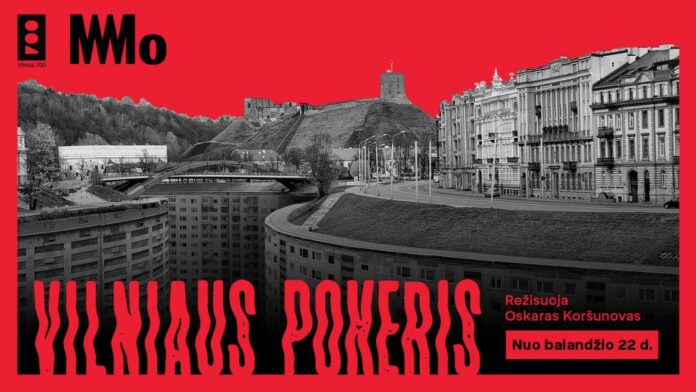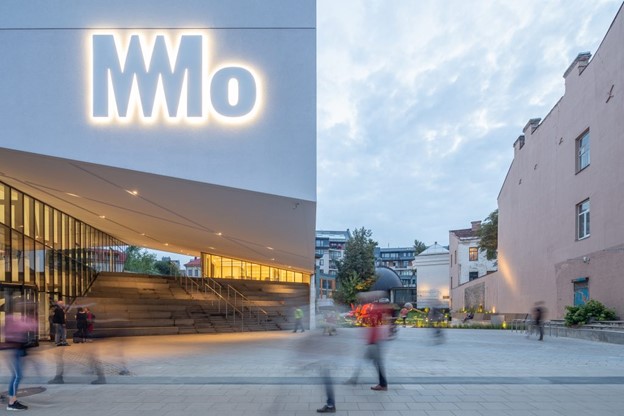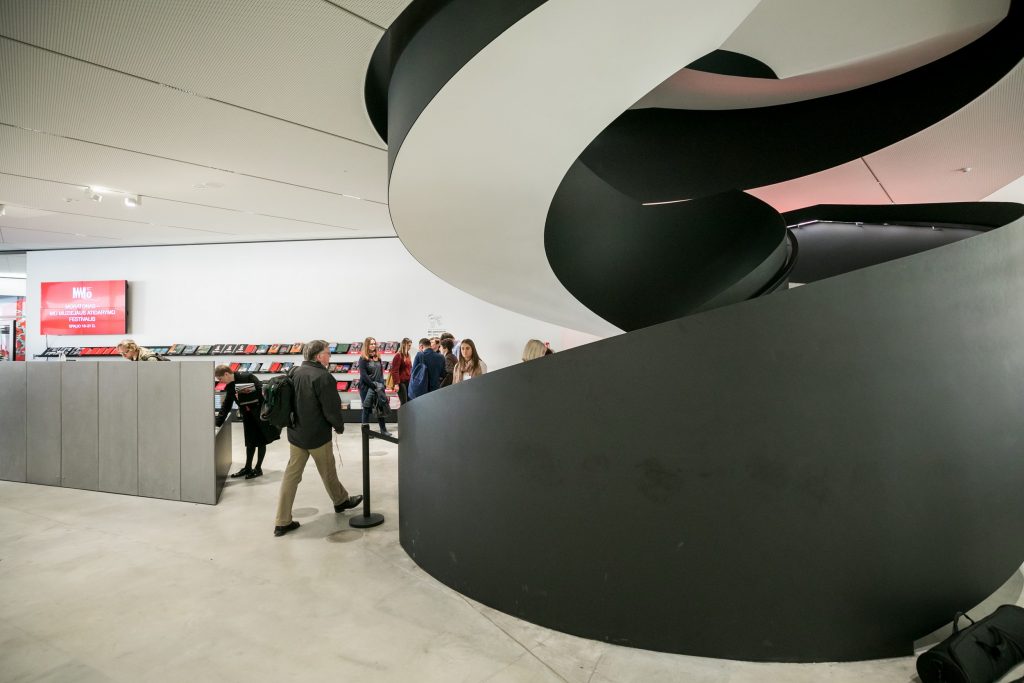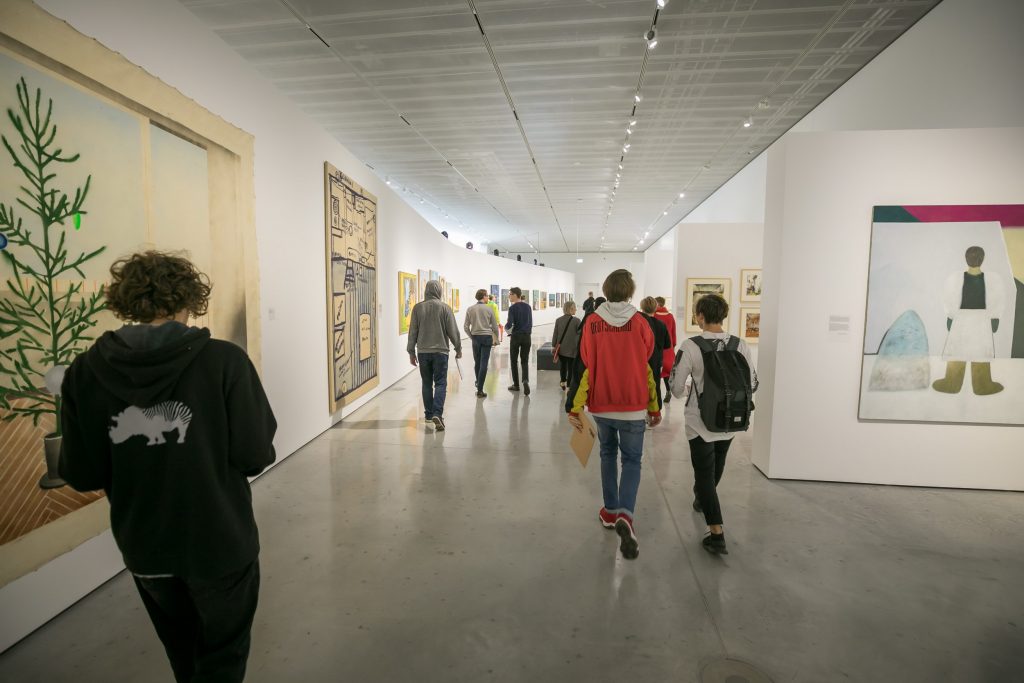
 So said Ričardas Gavelis in his famous novel Vilnius Poker, to this day referred to as one of the most important texts written in Vilnius. It has inspired multiple projects for the city’s 700th anniversary, including a film which we posted about here in mid-January.
So said Ričardas Gavelis in his famous novel Vilnius Poker, to this day referred to as one of the most important texts written in Vilnius. It has inspired multiple projects for the city’s 700th anniversary, including a film which we posted about here in mid-January.
 In the spring of 2023, the challenge to visually rethink Vilnius Poker was accepted by one of the most creative and innovative personalities in Lithuania’s theatre scene – director Oskaras Koršunovas and set designer, artist Gintaras Makarevičius.
In the spring of 2023, the challenge to visually rethink Vilnius Poker was accepted by one of the most creative and innovative personalities in Lithuania’s theatre scene – director Oskaras Koršunovas and set designer, artist Gintaras Makarevičius.
For many this book has become a symbol of liberation from the Soviet era and a symbol of creative freedom that deconstructed the Soviet reality, and was not afraid to have an opinion about jazz, architecture, arts, urban anthropology and multiculturalism. The MO Museum has undertaken the mission of portraying the novel and revealing the rebellious and silenced spirit of the period.
The exhibition is an immersive Vilnius Poker installation celebrating the history of Vilnius and taking a critical look at the experience and the future of the modern city. Koršunovas and Makarevičius interpret the character of Vilnius presented in the novel while looking for a unique harmony in a combination of artworks from the MO Museum collection as well as work created and borrowed especially for the occasion.
The cult novel depicts the complete deconstruction of the collapsing Soviet system and is one of the first Lithuanian books examining the city and its citizens. Vilnius is one of the most important characters, as the search for national and cultural identity is revealed through the point of view of the city. The novel remains relevant today – for the Western world it is an opportunity to look behind the Iron Curtain, and for residents of Vilnius it’s a chance to see how the city has changed.
 The time setting of the novel and the year it was published are important factors reflected in the exhibits. Although the exhibition is not a direct illustration of the novel, it does convey its atmosphere. The late Soviet period was the time of the most vibrant work of the artists who make up the bulk of the MO Museum collection. The exhibition also covers the deeper past as well as the present and future. The 150 exhibits freely interpret key topics in Gavelis’ novel – memory, identity, freedom and the enslaved mind. Guests are invited to reflect on their relationship with the city and with themselves.
The time setting of the novel and the year it was published are important factors reflected in the exhibits. Although the exhibition is not a direct illustration of the novel, it does convey its atmosphere. The late Soviet period was the time of the most vibrant work of the artists who make up the bulk of the MO Museum collection. The exhibition also covers the deeper past as well as the present and future. The 150 exhibits freely interpret key topics in Gavelis’ novel – memory, identity, freedom and the enslaved mind. Guests are invited to reflect on their relationship with the city and with themselves.
Visitors to the exhibition will get to know one of the most prominent stages in the history of Vilnius that contributed to the formation of the city we see today. It is set up as an allusion to a labyrinth formed by thematic spaces, where different moods are created by lighting and sound solutions as well as the pieces on display. After crossing the river of memory from the Soviet capsule, visitors will immerse themselves in the grotesque, discover the freedom of jazz and improvisation, explore visions and reality, or search for experiments of freedom.
The opening of the Vilnius Poker exhibition at the MO Museum on April 22 will be accompanied by the launch of the Moraton Festival, bringing an additional layer to the exhibition theme. The festival presents educational activities, talks and events. A virtual exhibition tour will also be available.
Vilnius Poker at the MO Museum – April 23, 2023 to January 28, 2024






























